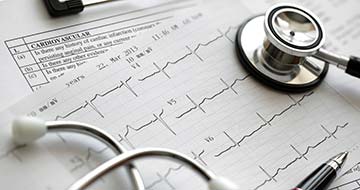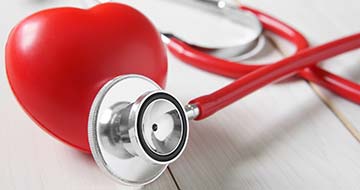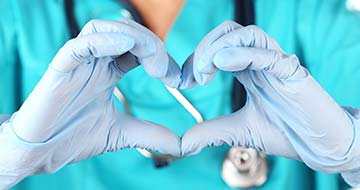Services
The first step in your care process is to understand the nature of your disease so that we can diagnose your condition.
Cardiac Electrophysiology, is the study of the electrical activities of the heart, specifically for the purposes of diag...
When our patients present with problems that may be cardiovascular in nature, we help determine the most likely diagnosi...
We help our patients improve blood flow in their arteries and veins by using very small tubes and specialized tools to d...
When the heart is functioning normally, the arteries are clear and open to allow for easy passage of blood through and o...
The highly trained surgeons and specialists at Biltmore diagnose and treat structural heart disease. We understand the n...
Heart Arrhythmia
Have you ever felt your heart "skip" a beat? When a rush of excitement or a scare takes you over, your heart might be too slow or too fast to catch up to where your body is. You may or may not have a heart arrhythmia. But when do those skipping beats become something that you need to worry about? And why is monitoring and treatment for an abnormal heart rhythm the key to staying healthy? Let’s break it down.
Heart Arrhythmia Definition
Heart arrhythmias are an abnormal or irregular heart rhythm, and are very common especially as you age. If you've occasionally felt these “heart-skipping” beats, don’t panic.
While more arrhythmias are harmless, some can be very dangerous to your health. It’s important to check with your physician, run tests and see if you do have a heart arrhythmia that needs monitoring and treatment. Below are some symptoms to be aware of when considering whether to schedule a heart checkup.
Symptoms of Arrhythmia
The symptoms can vary widely, so it’s important to be aware of which heart arrhythmia symptoms require more immediate attention.
What most people normally feel are one or two “premature beats” that we call palpitations, or skipped beats. Almost everyone has felt it in their life and though it feels quite abnormal, it is most likely not a sign of a permanent and persistent problem.
When these “premature beats” occur in a rapid succession of each other, it may cause you to be more aware of the fluttering feeling in your chest, and can even be felt in your neck. While most likely not dangerous, when arrhythmias last long enough to affect how well the heart works, that’s when more serious symptoms develop, including:
- General fatigue and dizziness
- Fainting or “seeing stars”
- Persistent rapid heartbeat
- Extreme chest pain, or in some very extreme cases, cardiac arrest
Though this might sound scary, there is plenty you can do to pay attention to how your body feels and help yourself going forward.
How Can You Help Yourself?
You can ask your physician for an electrocardiogram (EKG), which is the standard tool used to diagnose arrhythmias. It records the timing of atrial and ventricular electrical events to determine whether your heart beat is abnormal or irregular.
Alternatively, your physician might recommend you wearing a heart monitor for an extended amount of time. Whereas an EKG is around a 12 second view of your heart’s function, a heart monitor can record your heartbeats over a 24-hour time period, providing detailed insight into the presence or lack thereof of an arrhythmia.
Your physician might also run you through a treadmill test. This test might “provoke” an arrhythmia, making treatment easier to determine.
Monitoring is Key
Regardless of the physician or the testing you go through, it’s important for you to be proactive when it comes to your heart health. If you have noticed increased irregular heartbeats or significant chest pain, speak with your healthcare provider about any concerns you may have.







